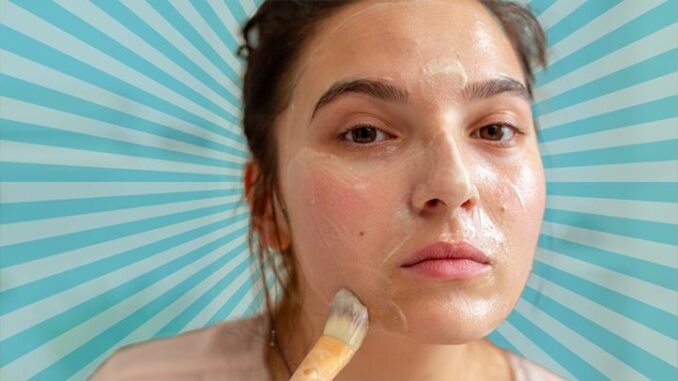
Introduction:
Acne breakouts are a common skin condition that can affect people of all ages and skin types. Characterized by pimples, blackheads, and cysts, acne can be both physically and emotionally distressing. Fortunately, there are numerous strategies for preventing and treating acne breakouts, ranging from lifestyle changes to skincare routines and medical interventions. In this comprehensive guide, we will explore the causes of acne, discuss effective prevention strategies, and provide detailed recommendations for treating existing breakouts to achieve clear, healthy skin.
Section 1: Understanding Acne
1.1 What Causes Acne: Acne develops when hair follicles become clogged with oil and dead skin cells, leading to the formation of pimples, blackheads, and other lesions. Several factors contribute to the development of acne, including hormonal fluctuations, excess oil production, bacteria, and inflammation.
1.2 Types of Acne: Acne can manifest in various forms, including:
- Whiteheads: Closed clogged pores.
- Blackheads: Open clogged pores.
- Papules: Small, red, tender bumps.
- Pustules: Pimples filled with pus.
- Nodules: Large, painful lumps beneath the surface of the skin.
- Cysts: Deep, pus-filled lesions that can cause scarring.
Section 2: Prevention Strategies
2.1 Maintain a Healthy Skincare Routine:
- Cleanse: Wash your face twice daily with a gentle cleanser to remove excess oil, dirt, and impurities.
- Exfoliate: Use a mild exfoliant 2-3 times per week to remove dead skin cells and prevent clogged pores.
- Moisturize: Apply a non-comedogenic moisturizer to keep your skin hydrated without clogging pores.
- Protect: Use a broad-spectrum sunscreen with SPF 30 or higher to protect your skin from harmful UV rays.
2.2 Avoid Triggering Factors:
- Diet: Limit consumption of sugary, high-glycemic foods and dairy products, which may exacerbate acne breakouts in some individuals.
- Stress: Practice stress-reduction techniques such as meditation, yoga, or deep breathing exercises to minimize the impact of stress on your skin.
- Makeup: Choose non-comedogenic, oil-free makeup products to avoid clogging pores and aggravating acne.
2.3 Practice Good Hygiene:
- Wash your hair regularly to prevent excess oil and bacteria from coming into contact with your face.
- Avoid touching your face throughout the day to minimize the spread of bacteria and prevent further irritation.
Section 3: Treatment Options
3.1 Over-the-Counter Products:
- Benzoyl Peroxide: A topical medication that kills acne-causing bacteria and helps to unclog pores.
- Salicylic Acid: A beta-hydroxy acid that exfoliates the skin and helps to prevent clogged pores.
- Retinoids: Topical medications derived from vitamin A that promote cell turnover and prevent the formation of new acne lesions.
3.2 Prescription Medications:
- Oral Antibiotics: Antibiotics such as tetracycline, doxycycline, and minocycline may be prescribed to reduce inflammation and kill acne-causing bacteria.
- Oral Contraceptives: Hormonal birth control pills containing estrogen and progestin can help regulate hormone levels and reduce acne in some women.
- Isotretinoin: A powerful oral medication reserved for severe, treatment-resistant acne that works by reducing oil production and preventing acne lesions.
3.3 Dermatological Procedures:
- Chemical Peels: A procedure in which a chemical solution is applied to the skin to exfoliate dead skin cells and unclog pores.
- Microdermabrasion: A minimally invasive procedure that uses a diamond-tipped wand to gently exfoliate the skin and remove debris from pores.
- Laser Therapy: A non-invasive treatment that targets bacteria and reduces inflammation to improve acne symptoms.
Section 4: Lifestyle Considerations
4.1 Diet and Nutrition:
- Eat a balanced diet rich in fruits, vegetables, lean proteins, and whole grains to support overall skin health.
- Drink plenty of water to stay hydrated and flush toxins from your body, which may help reduce acne breakouts.
4.2 Stress Management:
- Engage in regular exercise, meditation, or relaxation techniques to reduce stress levels and minimize the impact of stress on your skin.
- Get an adequate amount of sleep each night to allow your body to repair and regenerate, which is essential for healthy skin.
4.3 Skincare Habits:
- Avoid over-washing or scrubbing your face, as this can strip the skin of its natural oils and lead to irritation.
- Be gentle when applying skincare products and avoid using harsh chemicals or abrasive exfoliants that can damage the skin barrier.
Conclusion:
Acne breakouts can be frustrating and challenging to manage, but with the right prevention strategies and treatment options, clear, healthy skin is within reach. By understanding the causes of acne, practicing good skincare habits, and addressing underlying factors such as diet, stress, and hormonal imbalances, you can take control of your skin and achieve lasting results. Whether you prefer natural remedies, over-the-counter products, or medical interventions, there are numerous options available to help you combat acne and restore your skin’s natural radiance. With patience, consistency, and a comprehensive approach to skincare, you can prevent and treat acne breakouts effectively, leaving you with the clear, confident complexion you deserve.